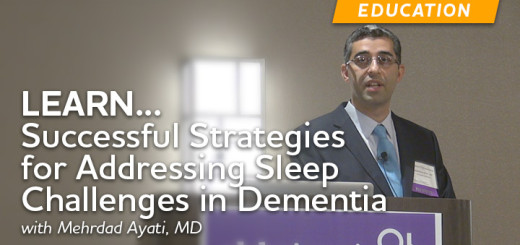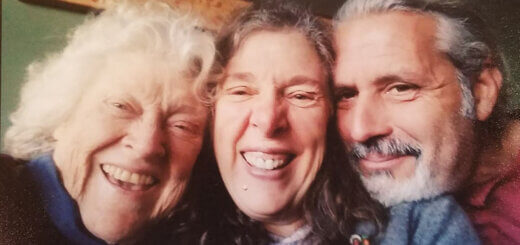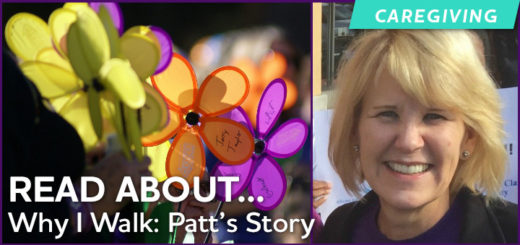Strategies for a successful placement: When staying at home is no longer an option
We were joined at our annual education conference in Sacramento by Carol Kinsel, GCM with Senior Care Solutions, who shared a comprehensive overview of moving a loved one. She started as a family caregiver 17 years ago, and now works to help families find the best options for placement for their family members with Alzheimer’s.
Carol first talked about clues that may indicate it is time to consider placing a loved one. The common thread throughout most of these issues was safety, whether it was the safety of the person with dementia or the caregiver. Wandering, challenging behaviors, increasing fall risk, extended unsupervised time, a need for more socialization, caregiver health problems and lack of a support system are all reasons it may be time to consider placement. Here are a few key steps she recommends for planning a move:
Putting your plan in place
“The first thing I want to know is: Who is involved in this picture?” It is important to identify key roles for family members and everyone involved in care, including family, friends, clergy, physician, social worker etc. Start by assigning everyone a role. “You may not feel you need the help now, but as this unfolds, you will need more support.”
Consider temporarily increasing care in the home while you conduct your search as you will be out in the community gathering information, touring facilities, etc. Also, join a caregiver support group to connect with others who may have gone through this experience and have sound advice to give – and attend education seminars about moving a loved one.
It is also critical to minimize stress on the person with dementia during this time. They should not be involved in specific details. Of course, “everyone is different; you know your loved one best and it can work to involve them very early, but be cautious.” She also recommends avoiding being bogged down by guilt. “Guilt is the gift that keeps on giving! But know the absolute worst thing you can do for your loved one with dementia is to not have a plan in place.”
Planning for transition
“Of course, because I own a resource center, I believe in working with a reputable company.” If you choose to go with a referral agency, she recommends checking references and working with an agency that will be with you through the entire disease journey and help you problem-solve. “Many times after someone is placed, there are problems in the community. We help work out those problems so they don’t have to move; and if they can’t be solved, we help determine next steps.”
You will need to get started on obtaining what is known as a Form 602A – a Physicians Report for Residential Care Facilities for the Elderly. This form will take a couple weeks to get and includes results of recent TB tests and information about your loved one’s diagnosis. “There are some regulations that an Alzheimer’s diagnosis has to go into memory care, but that is not always best for the person, particularly if they are still high functioning.”
Choosing a facility
“The number one thing people tell me is “˜I need something close to home,’ but the best option for you isn’t always the best for the person with dementia. If they are well adjusted, the distance is worth it.” Be sure to tour facilities and know what’s out there. Be familiar with some of the following elements of different types of communities:
“¢ Cost (including different fees and levels of care)
“¢ Services available
“¢ Nursing staff on site
“¢ Experience/staff training
“¢ Dining programs
“¢ Safety/security “If your person is a wander risk, how are they going to keep them safe? What kinds of alarms, what is their staff ratio? What is their mode of re-direction?”
“¢ Private vs. shared space “Most families want a private room and think that is the best. But if mom has always been in a room with dad and never been alone, sometimes a roommate can be really good and ease anxiety of waking up in the middle of the night.”
Strategies for success
Don’t wait for a crisis. “Making a rushed decision might yield less than satisfactory results.” Some of the drawbacks to waiting for a crisis include having less time for professional guidance and support; compounding the stress of a move with coping with increased cognitive and physical; high emotions and difficult family dynamics.
In order to minimize anxiety for the person with dementia, avoid involving them in very specific details. Introduce the idea of a move appropriately, as it gets closer and use a team approach. “We’ve been told to be truthful all our lives, but a compassionate fib is ok sometimes.” Above all, Carol recommends that people be gentle. “This is one the most difficult decisions you will ever make. Be gentle towards yourself.”
Move-in day
“Anticipation of the move is the most difficult phase of your journey; it will eat you up. But guess what? Things will get easier on the other side of the fence!” Work to formulate a plan and assign jobs to your family and the facility/staff ahead of time. “Regardless of the community’s size, know who is going to meet you at the door, what will happen, who will have the room set up in advance, etc.” For all of the preparation you do in advance, however, make sure to always call the community the day of your move in case there are any last minute changes, such as someone calling in sick.
It’s also important to have realistic expectations about the transition and allow time for an adjustment.
“Don’t be a hovercraft – I was a hovercraft. I was continually visiting and bringing activities and they couldn’t do their job. If you don’t learn to partner and trust and work in a positive way, your placement may fail.”
And remember “when you place a loved one, you are still a caregiver. You are leading the team. Allow for mistakes, they happen – but if they are big or repeating mistakes, take action to address the issue.”
“If you leave here today that is the one phrase I want etched in your mind,” She said. “Be prepared. Even if you don’t need it right now, know what your plan looks like.”
Helpful information related to this story
Blog: Is keeping your loved one with Alzheimer’s living at home the right choice?
Blog: Is there a right time to think about moving a loved one?
Alz Connected online message boards
All about care options
Find local resources
More caregiver tips
Alzheimer’s Association Caregiver Center

















